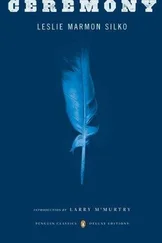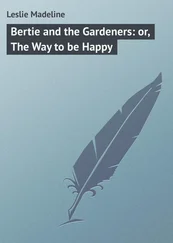Despite the snow on the tips of the distant mountain peaks, the weather in Needles was mild and dry. After dinner in the hotel dining room she slipped on a light coat for a walk around the small commercial district next to the train station and hotel. She hoped to find a different livery service to take her to Road’s End the next day, but she soon realized in a town that small, she would not find another. She resolved to ask the owner to drive her himself even if she had to pay extra.
She had just crossed the street before the train station when she heard loud laughter and voices; at the end of the dark alley she saw a small fire with four or five figures warming themselves. The instant she heard the voices clearly she knew they were Indians, all women, she thought, by the tones of voice. One started singing and the others joined, and Hattie realized the women were drunk. The twilight was fading to darkness, but she lingered to watch them from a safe distance; how terrible it was to see — had Indigo and her sister lived like this with their mother?
The owner of the livery service charged her extra and sent his hired man to drive her; she recalled then the sullen driver was his son. The hired man stole glances at her and she wondered if the sullen driver had talked about her and the visit to the girls. But she was so happy to be on her way to see Indigo, she scarcely noticed the man.
They reached Road’s End well before dark. Hattie did not want to spend another night on the horsehair mattress or see the expression in the trader and his wife’s eyes, so she directed the driver along the river, then up the old floodplain to the twins’ house. As they drew closer, Hattie felt excited but anxious too — what if her nightmare of the empty house came true?
She was never so happy to hear the parrot’s screech as she was at that instant; a moment later out came Indigo with Linnaeus on her hip and the parrot on her shoulder. Hattie began to wave wildly, but the child paused before she waved back. That hesitation made Hattie anxious. She knew she was an intruder here, but she only planned to drop off the blankets and supplies, perhaps spend a night or two, then return to Needles on the mail wagon.
She wasn’t able to give Indigo a proper hug because of the monkey and parrot but she kissed her forehead and smoothed her hair. She was aware she was being watched and looked up to see the sister with the baby. Indigo’s sister didn’t trust her; that was apparent from the expression on her face.
Once they carried indoors all the parcels and bundles from the wagon, the one-room house was crowded; the tubs of new beer needed the warmth of the house now that the nights were cold. Hattie felt a bit more relaxed as the twins joked about having their own trading post now as they stacked the canned goods and sacks of sugar and flour, onions and potatoes along the walls.
Vedna teased Hattie about forgetting the sack of barley they needed for beer, and they all laughed except Sister. Indigo was delighted to find sacks of millet and sunflower seeds for the parrot, and a big bag of special biscuits for Linnaeus. Indigo unpacked the two new lamps, filled them with oil, and lit them before it was even dark.
Sister sat on her bedroll and nursed the baby while Maytha and Vedna fried up the onions and potatoes Hattie brought with the jackrabbit they found snared that morning.
Hattie waited to tell Indigo about Edward until they’d finished eating and the older girls went outside to smoke. Indigo was bedding Linnaeus and didn’t react to the news but continued to arrange the parrot’s cage. Hattie was embarrassed by the sound of her voice in the little room as she repeated the news of Edward’s death. Indigo looked down and shrugged her shoulders before she looked at Hattie.
“Are you sorry?” Indigo asked.
The question took Hattie by surprise, but she recovered quickly. Yes, she was sorry because Edward once meant a great deal to her. Indigo looked into her eyes as she spoke, and did not blink; she had not thought about Edward since they said good-bye at the train station. The world Edward lived in seemed distant from the world of Road’s End. Indigo recalled the day he gave her Linnaeus and how he showed pictures of parrot jungles and orchid flowers. Except for the big glassy eye of his camera, Indigo thought he wasn’t a bad man.
“Poor thing. I guess he was old,” Indigo said.
Hattie nodded and fought back tears. She was shocked at the awkwardness between them in a matter of only six weeks. What a fool she was! Indigo returned to the life and sister she had before she was taken away to boarding school. Hattie realized, oddly enough, she was the one who no longer had a life to return to. Although they would welcome her, she could not return to her parents’ house.
Hattie looked very tired so Indigo showed her how to make her bed with three of the new blankets — two on the bottom, roll yourself up in the top blanket. When Hattie took her nightgown from the train case, the book of Chinese monkey stories was under it. She held up the book for Indigo to see, and her face lit up with anticipation. She scooted close to Hattie on the blankets and looked down at the page. Now at last she and the child resumed their former ease with each other as she began to read aloud.
Awhile later, Hattie looked over and saw that Indigo was asleep; the girls were sitting near the doorway listening. The twins were curious to know more about the adventures of Monkey and his companions, but Sister Salt said nothing.
The next day Indigo took Hattie along on her morning excursion with the monkey and parrot along the water’s edge. Hattie was saddened at the sight of church steeple rising out of the water. Didn’t anyone ever tell the people here about the lake made by the dam? Indigo shrugged; they told the people the water wouldn’t come that high.
Indigo showed Hattie the sprouts from gladiolus corms; the corms sent up long green blades, but they wouldn’t bloom until after Christmas, when the days got longer.
The beans and black-eyed peas in the girls’ garden looked promising, but even with the amaranth and greens the garden seemed meager. Hattie thought some chickens and goats might be good for the girls, too, or one of those pigs her father raised. She did not want to antagonize Indigo’s sister on her first visit, so she made it short. The following morning Indigo and the twins walked with Hattie to the trading post, where the mail wagon took on passengers or freight for Needles. The mail wagon driver recognized the twins and was friendly enough as he took Hattie’s valise and helped her up into the wagon. The store man and his wife brought out the sacks of mail. They stared past Hattie as if she were invisible, even after she murmured hello to them. The twins whispered to each other and laughed out loud; the storekeeper and his wife stiffened their backs and glared as Indigo started laughing too. The driver clucked to the horses and the wagon creaked, and the harness jingled as they pulled away from Road’s End. Hattie turned on the seat and waved at the girls, who waved back until the wagon went over the hill.
The mail wagon driver was a talkative man who didn’t seem to mind Hattie’s reluctant replies. He asked if she was a missionary of some sort and if she planned to settle around there. He added non-Indians weren’t allowed to reside on the reservations without government permits, and only merchants, missionaries, and schoolteachers could obtain them.
To change the subject Hattie asked about farmland for sale in the area; the driver launched into a long account of locations and prices and availability of irrigation water or wells. If she didn’t mind being around Indians, the cheapest way to go was to lease Indian land from the Indian Bureau. Forty-year leases were cheaper than the ninety-nine-year leases and just as good, with options to renew for another term.
Читать дальше












